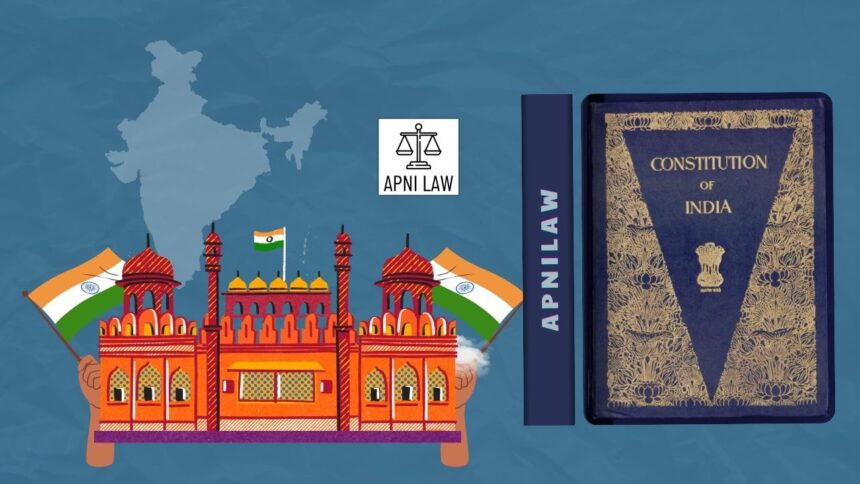Introduction
An independent judiciary is one of the most important pillars of the Indian Constitution. It guarantees that the rule of law is maintained and that justice is delivered without bias or political influence. When the Constitution was framed, the makers understood that true democracy could not survive without impartial courts. This feature ensures that no individual, including those in power, can act above the law. The judiciary acts as the guardian of the Constitution, protecting the fundamental rights of citizens and keeping the legislature and executive within their limits. In a diverse and democratic country like India, judicial independence is essential to uphold equality, liberty, and justice for all.
Meaning and Explanation
The term independent judiciary means that the courts are free from external control or interference, especially from the government or other political forces. Judges must be able to make decisions based on law, evidence, and their conscience, without fear or favor. This independence is not just a privilege for judges but a necessity for citizens who rely on courts to deliver fair judgments.
In India, the concept of judicial independence comes from the principle of separation of powers. The legislature makes laws, the executive implements them, and the judiciary interprets them. By keeping these functions separate, the Constitution prevents the concentration of power in one hand. The judiciary also plays the role of a watchdog, ensuring that other organs of the government do not misuse their authority.
Relevance and Applicability
The importance of an independent judiciary becomes evident when we look at its functions. It resolves disputes between individuals, between citizens and the state, and even between states and the Union government. It also protects the fundamental rights guaranteed under Part III of the Constitution. Whenever a law or executive action violates these rights, citizens can approach the courts for relief. This is possible only because the judiciary is free from political pressure.
An independent judiciary also strengthens public confidence in the legal system. People trust the courts because they know that judges cannot be easily influenced by those in power. If this trust is lost, the entire democratic structure would collapse.
How the Constitution Ensures Judicial Independence
The Constitution of India provides several safeguards to maintain judicial independence. Judges of the higher judiciary, such as the Supreme Court and High Courts, enjoy security of tenure. They cannot be removed from office easily except through a rigorous impeachment process. Their salaries and allowances are charged on the Consolidated Fund of India, which means the executive cannot reduce them to exert pressure.
Another important safeguard is the power of judicial review. Courts can strike down any law or executive order that violates the Constitution. This power makes the judiciary a true guardian of the Constitution. Additionally, the procedure for appointing judges, though debated over time, is designed to keep political influence at a minimum. Article 50 of the Constitution directs the state to separate the judiciary from the executive in public services, further ensuring independence.
Case Law
Several landmark judgments highlight the role of judicial independence in India. In Kesavananda Bharati v. State of Kerala (1973), the Supreme Court held that judicial review is part of the basic structure of the Constitution, which cannot be amended. Similarly, in S.P. Gupta v. Union of India (1981), the Court emphasized the importance of judicial independence in the appointment of judges.
Another significant case is Supreme Court Advocates-on-Record Association v. Union of India (2015), which struck down the NJAC (National Judicial Appointments Commission) Act. The Court held that the Act violated the independence of the judiciary by giving too much control to the executive in the appointment of judges.
Challenges to Judicial Independence
While the Constitution provides strong safeguards, judicial independence faces challenges. Allegations of political pressure, media influence, and delays in justice sometimes weaken public confidence. The debate on the collegium system versus the NJAC also reflects the struggle to maintain a balance between transparency and independence. Despite these issues, the judiciary continues to play a vital role in upholding constitutional values.
Why Judicial Independence Matters in a Democracy
Judicial independence is not just a legal principle but the backbone of democracy. Without it, the government could easily misuse power, and citizens would lose their fundamental rights. Courts act as a shield against arbitrary actions, ensuring accountability. In India’s parliamentary system, where the executive often dominates the legislature, the judiciary serves as a check on excessive power. This makes its independence all the more critical.
FAQ
1. What is meant by an independent judiciary in India?
An independent judiciary means that the courts in India function without interference from the executive or legislature. Judges make decisions based on law and justice, not political pressure.
2. Why is judicial independence important in a democracy?
Judicial independence ensures fairness, protects fundamental rights, and maintains the rule of law. Without independence, courts cannot check the misuse of power by the government.
3. Which Article of the Indian Constitution ensures judicial independence?
Judicial independence is not mentioned in one single Article but is ensured through multiple provisions like Articles 50, 124, and 217, along with the separation of powers principle.
Conclusion
The independent judiciary is a cornerstone of the Indian Constitution. It guarantees that justice prevails over political influence and protects the rights of every citizen. Despite challenges, judicial independence remains strong due to constitutional safeguards and judicial integrity. In a democracy as large and diverse as India, an impartial judiciary is not a privilege but a necessity. For any issue concerning judicial interpretation or constitutional rights, consult experienced legal professionals to get accurate guidance.
For any specific query call at +91 – 8569843472







